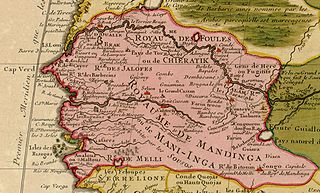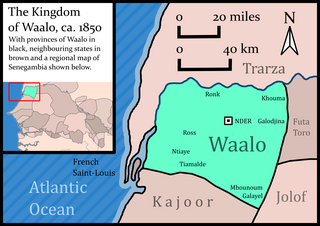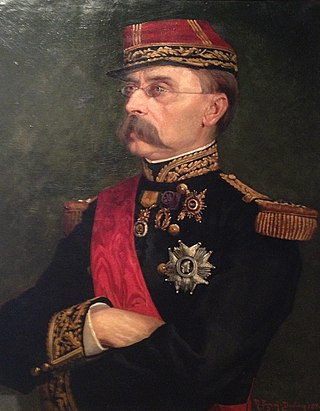History
Historically, Maurel & Prom was based in Bordeaux and was one of France's largest family-run shipping and foreign trade houses. It had trading interests throughout the French colonial empire, which included trading houses in Saint-Louis, Senegal, and modern Guinea, Gambia, Mali and Ivory Coast. The company changed its focus to agribusiness in 1986. It pivoted to oil exploration and production in 1998. [1]
Since 16 February 2017 Maurel & Prom has been backed by PIEP, a subsidiary of the Indonesian state oil company Pertamina, and aims to become the international development platform for the upstream activities of Pertamina and PIEP.
Assets Portfolio
- France (Headquarters)
- Italia: Exploration & Appraisal
- Colombia: Exploration & Appraisal
- Venezuela: Production
- Nigeria (20.46% stake in Seplat): Production
- Gabon: Exploration & Production
- Angola: Production
- Namibia: Exploration & Appraisal
- Tanzania: Production, Exploration & Appraisal

The history of Senegal is commonly divided into a number of periods, encompassing the prehistoric era, the precolonial period, colonialism, and the contemporary era.

Waalo was a kingdom on the lower Senegal River in West Africa, in what is now Senegal and Mauritania. It included parts of the valley proper and areas north and south, extending to the Atlantic Ocean. To the north were Moorish emirates; to the south was the kingdom of Cayor; to the east was Jolof.

Louis Léon César Faidherbe was a French general and colonial administrator. He created the Senegalese Tirailleurs when he was governor of Senegal.

The Banque de l'Afrique Occidentale, known from 1853 to 1901 as Banque du Sénégal and from 1965 to 1990 as the Banque Internationale pour l'Afrique Occidentale (BIAO), was a bank headquartered in Dakar. During most of its history it was the main or only commercial bank and bank of issue in French Senegal and French West Africa.

René Maran was a French poet and novelist, and the first black writer to win the French Prix Goncourt.

Rivières du Sud was a French colonial division in West Africa, roughly corresponding to modern coastal sections of Guinea. While the designation was used from the 18th to 20th century, the administrative division only existed from 1882-1891.

Faidherbe Bridge is a road bridge over the Senegal River which links the island of the city of Saint-Louis in Senegal to the African mainland. The metal bridge is 507.35 m (1,664.5 ft) long and 10.5 m (34 ft) wide, weighing 1,500 t. It has eight spans, of which the longest five are 78.26 m (256.8 ft).
The National Archives of Senegal is headquartered in Dakar, in the Central Park building on Avenue Malick Sy. It was first called Archives Nationales in 1962, but the collection existed since 1913 as the archives of the colonial French West Africa administration. It moved from Saint-Louis to Dakar after 1958.
Basse Casamance National Park, located near Oussouye in Ziguinchor, is one of six national parks in Senegal. It is currently closed.

Henri Brosselard-Faidherbe (1855–1893) was a French military officer and explorer.
The French conquest of Senegal started in 1659 with the establishment of Saint-Louis, Senegal, followed by the French capture of the island of Gorée from the Dutch in 1677, but would only become a full-scale campaign in the 19th century.
Confédération africaine des syndicats libres, initially 'Confédération africaine des syndicats libres-Force ouvrière, was an Africa confederation of trade unions. CASL-FO was founded in February 1958 as the African sections of the French trade union centre CGT-Force Ouvrière separated themselves from their mother organization. The new union confederation was founded at a conference in Abidjan February 8–9, 1958, with participation of the CGT-FO branches of Senegal, French Soudan, Upper Volta, Niger, Ivory Coast, Cameroon, Moyen-Congo and Ubangui-Shari. At the time of the founding of CASL-FO, the relationship of the new structure with the International Confederation of Free Trade Unions (ICFTU) and CGT-FO, was debated. In the end the conference resolved that CASL-FO and CGT-FO should have membership of ICFTU on equal footing.
The Youth Council of the French Union was a coordinating body of youth organizations in the French Union. CJUF was founded in 1950. The organization had its headquarters in Paris and held annual congresses.

The Point of Sangomar is a sand spit located on the Atlantic Ocean at the mouth of the Saloum Delta, which marks the end of the Petite Côte west of Senegal.

The Battle of Logandème was an uprising led by the Serer King Maad a Sinig Kumba Ndoffene Famak Joof, king of Sine, against the French Empire. The battle took place at Logandème which was a part of Sine at the time. The battle was also a revenge attack against the Serer people after their resounding victory against France at the Battle of Djilass on 13 May 1859. It was the first time that France decided to employ cannonball in the Senegambia.
The Royal House of Jogo Siga Joof was the second royal house founded by the Joof family during the Guelowar dynastic period of Sine. The Guelowar period commences from c. 1350 during the reign of Maad a Sinig Maysa Wali and ends in 1969 following the deaths of the last Serer kings of Sine and Saloum and the disestablishment of the monarchies in Serer countries. The pre-colonial Kingdom of Sine now lies within present-day Senegal.

France and Senegal are both full members of the Organisation internationale de la Francophonie, and the United Nations.
The following is a timeline of the history of the city of Saint-Louis, Senegal.

Benin–Turkey relations are the foreign relations between Benin and Turkey. Turkey has an embassy in Cotonou since 2014, while the Beninois embassy in Ankara opened in 2013, however the embassy was closed in 2020.
Hostage schools were educational institutions established by the French colonizer in Senegal and French Sudan where the sons of chiefs and notables were forcibly recruited to be monitored and trained to become auxiliaries of colonial power. The first hostage school was established in Saint-Louis in Senegal by Governor Faidherbe in 1855.












